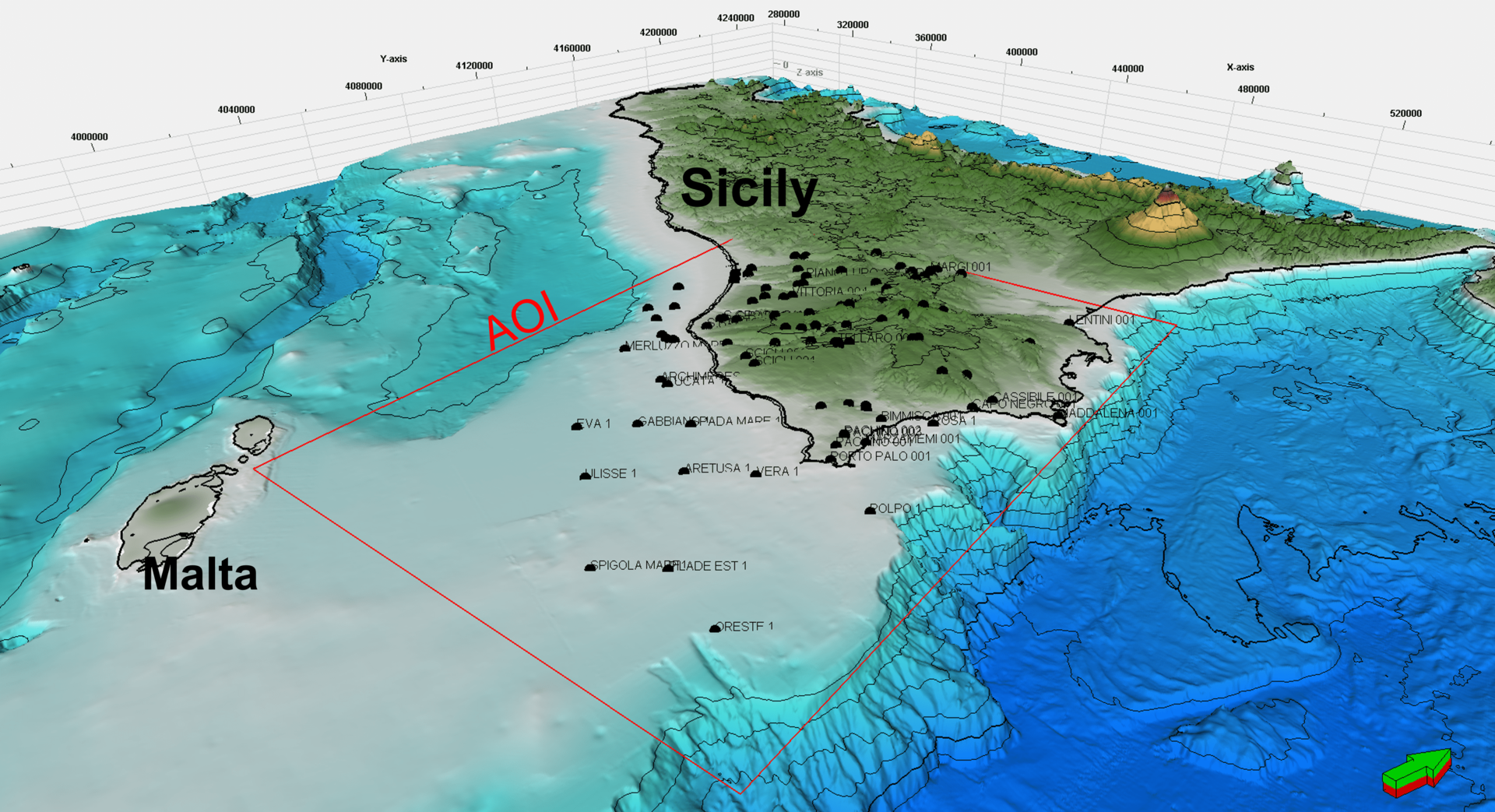What is an STSM?
Short-Term Scientific Missions (STSMs) are exchange visits in a Host Institution located in a different country than the country of affiliation of a Researcher or Innovator. STSMs aim to strengthen collaboration among researchers and Institutions or improve knowledge and skills of individuals. It specifically contributes to the scientific objectives of the OFF-SOURCE (Offshore freshened groundwater: An unconventional water resource in coastal regions?) CA21112 COST Action, whilst at the same time allows the Grantees to learn new techniques, gain access to specific data, instruments, and/or methods not available in their own institutions/organisations. At the same time, the Host will expand its international contacts and develop long lasting collaboration
A new call is open from 1 to 30 June 2024. Extension of the deadline to 30 July 2024
Duration
The STSM must have a minimum duration of 5 calendar days that includes travel. The STSM needs to be carried out in its entirety within a single Grant Period and always within the Action’s lifetime.
Financial support
A STSM Grant is a contribution to the overall travel, accommodation, and meal expenses of the Grantee. STSM Grants do not necessarily cover all expenses related to undertaking a given mission. During Grant Period 1 (November 2022 – October 2023), the Management Committee of COST Action CA21112 has allocated up to a maximum of €4000 for each individual STSM. During the current Grant Period 2 (November 2023 – October 2024), the Management Committee of COST Action CA21112 has allocated up to a maximum of €2500 for each individual STSMs (6-8 in total).
STSM Grantees must make their own arrangements for all provisions related to personal security, health, taxation, social security, and pension matters.
The amount granted for each individual STSM will be determined during the evaluation process. Grants are normally processed only after the STSM has taken place and the reporting requirements have been satisfied and approved by the Grant Awarding Coordinator and the Grant Assessment Committee. However, STSMs Grantees may request up to 50% prepayment of the approved grant. This amount is subject to availability of funds and approval by the Grant Holder Institution. The request of prepayment shall be submitted to the Grant Holder Manager. In such cases, the representative of the Host Institution must confirm by e-mail to the Grant Holder that the STSM applicant has officially started the mission on day 1. Only then the Grant Holder can arrange the payment of 50% of the STSM grant. The remaining 50% of the Grant is payable once the scientific and administrative requirements have been satisfied after the presentation of the scientific report.
Conditions and obligations for the Awardee
Proper acknowledgement of COST Action 21112 OFF-SOURCE must be done for all work and publications that benefited from the action.
Creation and provision of contents for OFF-SOURCE social networks and official web page.
Compliance with the dissemination and data sharing guidelines provided by the host and OFF-SOURCE.
The STSM must take place in a different country from the applicant’s Host Institution country.
The candidate needs to get in touch with the proposed Host Institution.
Within 30 days from the end date of the STSM, the Grantee must submit a scientific report to the Host Institution and to the Action MC. The scientific report should cover the purpose of the STSM, the work developed, the main achievements of the STSM, and the planned future follow up activities. It is obligatory to use a scientific report template that is available within the Grant Awarding user guide and on the e-COST Supporting documents page.
After the submission of the scientific report to the Host Institution, the Grantee must obtain an official acceptance confirmation from a researcher affiliated to the Host Institution formally accepting the scientific report. The Host approval of the report can be an email confirming that the STSM took place and the goals outlined in the Work plan were reached.
The Grantee must upload both documents (scientific report and Host acceptance confirmation email, both in pdf) to the e-COST system, otherwise the completion procedure will not be possible.
The submission of the supporting documents is mandatory or the Grant is cancelled. Late submission can also lead to the cancellation of the Grant and the obligatory reimbursement by the Grantee of the amount received in cases of a pre-payment.
The Grant Report will be refused (cancelling the grant) if any of the conditions/obligations are not met.
To learn more about COST rules and about Short-Term Scientific Missions please refer to the COST Grant Awarding user guide and the COST Annotated Rules.
How to apply
The applicant is responsible for choosing and contacting the Host institution and for organizing the application process. All applicants must register for an e-COST profile at https://e-services.cost.eu/, fill in their profile (including bank details and CV), and then complete the online application form (as described in the Grant Awarding user guide).
The following supporting documentation will also have to be uploaded:
- Confirmation of the agreement from the Host Institution in receiving the applicant
- Work plan: it should include the objectives of the visit (and their alignment with the tasks assigned), the timeline, the core tasks to be undertaken, the expected outputs and deliverables, and a dissemination plan.
- Written agreement from the Host Institution that the STSM applicant can perform the activities detailed in the STSM work plan on the agreed dates.
Evaluation criteria
The proposals will be considered eligible, evaluated, and approved based on the following criteria:
- Quality of the scientific proposal of the applicant (up to 17 points):
- How will the proposal respond to the scientific scope of the action? (up to 5 points)
- Innovative aspects of the proposal in respect to the action scope (e.g., interaction among countries, new knowhow inputs related to OFF-SOURCE targets, interdisciplinarity)? (up to 5 points)
- Feasibility to meet the proposed objectives within the STSM time frame. (up to 5 points)
- How will the activity have a positive impact on the applicant’s career? (up to 1 point)
- Access to facilities/equipment/expertise not existing in the home institution. (up to 1 point)
- Qualification of the applicant (up to 15 points):
- CV of the applicant (up to 5 points)
- Publication list, with preference for themes within the action scope. (up to 5 points)
- Priority will be given to Young Researcher and Innovator (YRI) (under the age of 40) and PhD students, with a preference for applicants with a primary affiliation in an institution located in an ITC. Proposals from candidates affiliated to Institutions not based on ITCs are also welcome. (up to 5 points)
OFF-SOURCE is fully committed to promote gender equality.
Preference will be given to candidates who have not yet benefitted from a STSMs with OFF-SOURCE.
Currently open call
Timeline
This call is open from 1 June 2024 until 30 July 2024.
The deadline for applications to be submitted is 30 July 2024.
The evaluation period will be 1-15 August 2024.
The STMSs should be carried out between 30 July and 15 October 2024.
WG1 related missions
Context
The main objective of WG1 “Assessment” is to compile two new open-access comprehensive databases. One database contains existing data and literature on OFG bodies in European waters. From this database, which contains existing onshore and offshore geological and geophysical data, hydrogeological and 3D geological models for specific areas are generated. These will form the basis for the development of numerical models based on the best available offshore and onshore geoscientific information. The second database compiles the known geological and geophysical data from margins of COST Member Countries available through from published literature and public datasets, to identify the most promising areas from an OFG perspective.
We encourage STSM proposals that include the development of a WebGIS product that allows users to easily query and extract information from the compiled databases.
Tasks of WG1
Task 1.1: Compile a database of known OFG bodies and their characteristics in waters of
COST Member Countries from published literature and data sets (e.g., borehole logs,
geophysical data).
Task 1.2: Compile a database of available geological and geophysical data from margins of
COST Member Countries from published literature and data sets (e.g., EMODnet,
SeaDataNet).
Task 1.3: Generate 3D geological models of selected margins (based on good data
coverage) by integrating data from 1.2 with available onshore geological and
hydrogeological data (e.g., Gleeson et al., 2014; Hartmann and Moosdorf, 2012; Huscroft
et al., 2018; Zamrsky et al., 2018).
Task 1.4: Run transient hydrogeological simulations over at least two glacial cycles,
calibrated with data from 1.1, to predict the occurrence, salinity and volume of OFG at the
selected margins.
STSM activities
The proponent will collaborate with experts from the host institution in the development of a WebGIS resource that will allow users to easily consult and extract information from the OFF-SOURCE databases. The output of the STSM applicants should produce an
appealing Webmap, and a user-friendly interface for further data contributions for different collaborators. A semi-automated process will be developed for quality control and rapid integration of the new and existing data into the WebGIS.
Required Skill Sets
Applicants should have a solid background in WebGIS product development, ideally using open- access tools. Applicants are expected to be familiar with GIS software (QGIS, GRASS, ArcGIS), map servers and spatial database tools and languages (e.g. Python, GDAL, SQL, PostGIS or other appropriate languages).
This opportunity is well- suited for geographical information engineers. Knowledge of geosciences and geophysics is not essential but may be an advantage.
WG2 related missions
Context
The main objective of WG2 „Innovative Technologies“ is to review existing instrumentations, methods and approaches including geophysics, geochemistry, geology and numerical modelling that have been used to study offshore freshened groundwater (OFG) systems around the globe. To identify the most suitable and effective tools and methods, WG2 will carefully analyse the Pro’s and Con’s of these studies. Based on that, we will develop best practice strategies for OFG exploration and provide the community with hands-on guidelines for the data analysis and interpretation. We encourage STSM proposals that contribute to the improvement of practical OFG field surveying techniques, lab analysis methods, and numerical data integration and interpretation for OFG characterisation that meet the Tasks of WG2.
Tasks of WG2
Task 2.1. Synthesise and critically analyse available instruments and approaches for OFG mapping and characterisation (e.g. geophysics, geochemistry, well logging, numerical modelling, integrated interpretation and joint inversion of seismic reflection and electromagnetic data).
Task 2.2. Compile standard guidelines for the operation of the instruments, processing of the data they generate, and their interpretation.
Task 2.3. Identify avenues for future method development and propose new instrument designs.
STSM Activities
The proponents may collaborate with experts from host institutions specialized in one or more of the following methods and research areas, preferably related to OFG characterisation:
• Development and field application of marine geophysical (seismic, electromagnetic) instruments
• CSEM instrument development covering the near shore to far offshore connection
• Geophysical (seismic, electromagnetic) data interpretation, also joint inversion
• Geochemical and petrophysical lab analysis methods, borehole and sampling methods
• Stable isotope analysis, age dating of water, water extraction methods
• Integrated data analysis of geophysical and hydrogeological parameter
Required Skill Sets
The applicants should have a solid background in one or more of the following skill sets:
Marine electromagnetic methods
• CSEM, ERT instrumentation and field acquisition
• Data analysis and interpretation
Marine seismic and hydroacoustic methods
• Analysis of multiple data sets (2D, 3D, chirp, water column)
• Reprocessing of existing (commercial) data
• Bathymetry and seafloor imaging
• Sequence stratigraphy
Joint inversion and interpretation of marine geophysical methods (seismic, electromagnetic, physical properties)
• Code adaption, systematic modelling studies, application to available multi-physical data sets
Lab analysis
• Age dating
• Pore fluid analysis
Sampling and drilling
• Downhole logging methods and tools, pumping tests, coring and drilling
• Lithology, pore fluid analysis, porosity, permeability, salinity
WG3 related missions
Context
The main object of WG3 is to identify water resource applications where OFG would be potentially useful or feasible by addressing the technological and economic feasibility gaps that currently exist. The following STSM activities are designed to address the main tasks and deliverables of the working group. We welcome innovative STSM proposal that align with the following tasks and welcome ideas that incorporate the use of emerging technologies such as AI and remote sensing.
Tasks of WG3
Task 3.2 Compile a database of existing hydrocarbon-related (e.g. wells, platforms) and water treatment infrastructure in COST Member Countries.
Task 3.3 Identify the most appropriate sites in COST Member Countries for OFG exploitation, based on the occurrence of OFG, water scarcity, and hydrocarbon-related and water treatment infrastructure.
Task 3.4 Test the hydrogeological feasibility of the sites identified in 3.3 using models developed in 1.4, and carry out a cost-benefit analysis of the strategies proposed in 3.1.
STSM Activities
Focus area: Database Compilation and Analysis
Objective: Compile a database of existing hydrocarbon-related and water treatment infrastructure in COST Member Countries.
STSM Activities:
- Collaborate with a host institution that has expertise in water data management and analysis. Work with local experts to gather data from relevant companies, national geological surveys, government agencies, environmental agencies and research institutions.
- Explore the use of AI tools such as ChatGPT or Gemini to retrieve and compile a comprehensive list of hydro-carbon related and water treatment infrastructure in EU COST Member Countries.
- For the regions where water treatment infrastructure exists, identify the most appropriate sites in EU COST Member Countries for OFG utilization based on OFG occurrence (refer to OFF-SOURCE OFG Database), water scarcity, and existing infrastructure.
Where possible, it would be ideal if applicants can involve relevant companies or government agencies.
Required Skill Sets:
- Proficiency in data management and analysis.
- Relevant Software: Excel, SQL, GIS (Geographic Information System).
- Environmental assessment and site evaluation.
- Strong interpersonal and collaboration skills.
Candidates possessing a combination of these required skill sets and bonus skills would be well-equipped to contribute effectively to the STSMs and support the goals of the Utilization Working Group in the OFF-SOURCE COST Action.
STSM Grantees Year 2

Daniel Zamrsky
Topic: Estimating onshore and submarine groundwater potential in Zanzibar
Home Institution: Utrecht University (Utrecht, Netherlands)
Host Institution: Ruden AS, Oslo
Duration of stay(days): 15
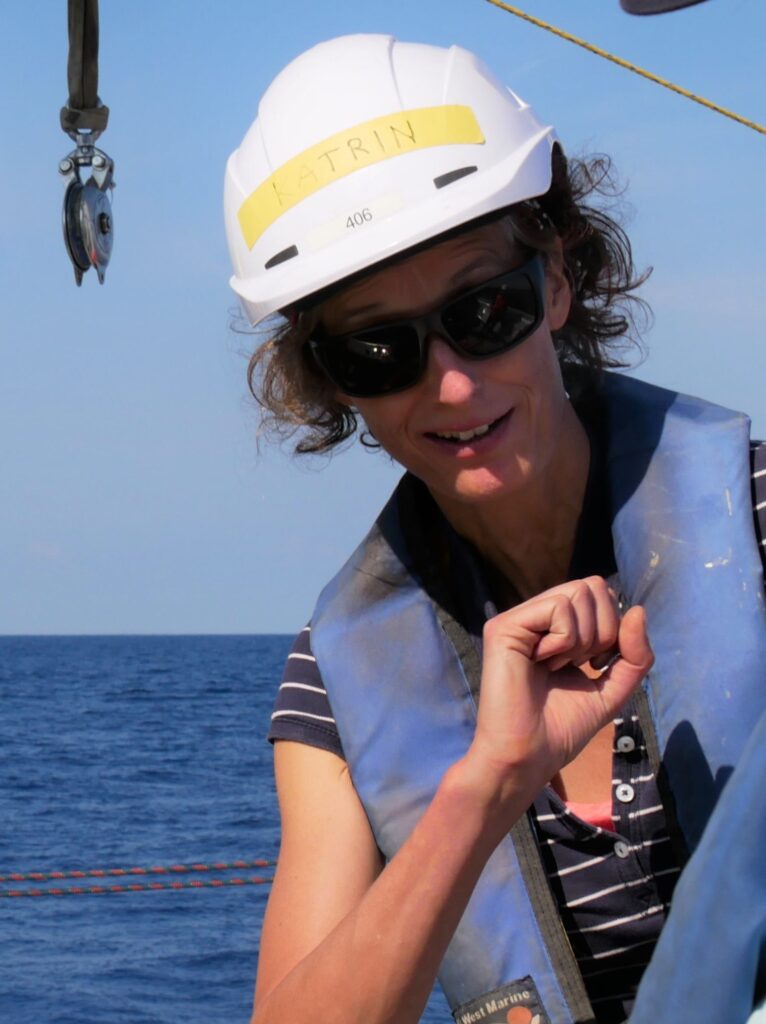
Katrin Schwalenberg
Topic: Review and next step developments of marine electromagnetic (EM) methods for offshore freshened groundwater exploration
Home Institution: Federal Institute for Geosciences and Natural Resources (Hannover, Germany)
Host Institution: IUEM – Institut Universitaire Européen de la Mer
Duration of stay(days): 12
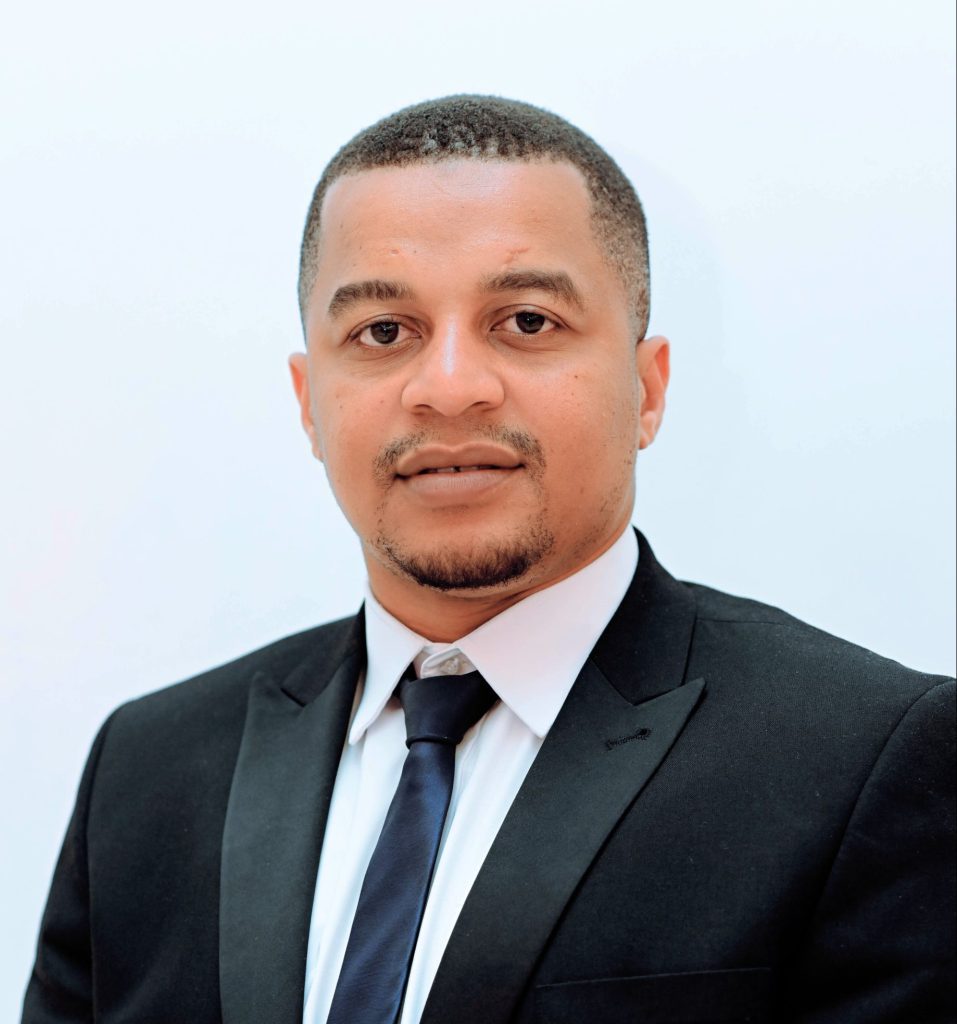
Hamid Abdalla Hamid
Topic: Preliminary cost analysis of offshore groundwater exploitation in the Zanzibar channel
Home Institution: Coventry University (Coventry CV1 5FB, United Kingdom)
Host Institution: Ruden AS, Oslo
Duration of stay(days): 7

Anna Eliana Pastoressa
Topic: Characterization of Offshore Freshened Groundwater in the Central- Adriatic Coastal Area Through 2D Electrical Resist
Home Institution: University of Malta
Host Institution: Bundesanstalt für Geowissenschaften und Rohstoffe (Hannover, Germany)
Duration of stay(days): 19

Xavier Garcia
Topic: Assessment and development of marine electromagnetic instrumentation and software for offshore freshened groundwater exploration
Home Institution: Agencia Estatal Consejo Superior de Investigaciones Cientificas (CSIC) (Barcelona, Spain)
Host Institution: Institut Universitaire Européen de la Mer (IUEM)
Duration of stay(days): 12

Marieke Paepen
Topic: Fresh- and saline groundwater distribution at high dynamic shores
Home Institution: Ghent University (Gent, Belgium)
Host Institution: Carl von Ossietzky University (Oldenburg, Germany)
Duration of stay(days): 14
STSM Grantees Year 1
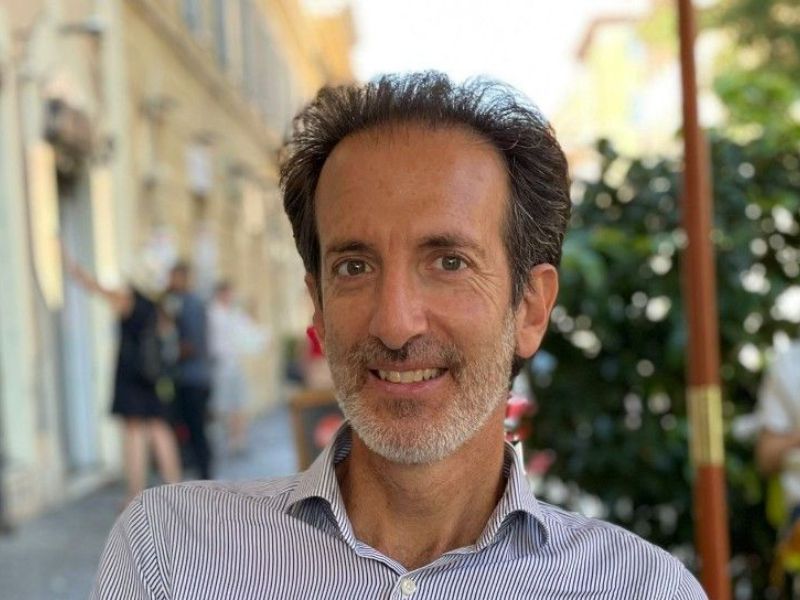
Lorenzo Lipparini
Topic: Identification and quantification of freshened groundwater presence and distribution in the southern offshore of Sicily (Italy) by applying petrophysical interpretation to a well log dataset from the oil industry.
Home Institution: University of Malta
Host Institution: Ruden AS, Oslo
Duration of stay(days): 9
Objectives: The aim of the visit is to implement a robust quantitative use of geophysical logs from deep Oil&Gas wells drilled in the southern offshore of Sicily (Italy), to estimate and/or extract groundwater salinity information as the base for a groundwater 3D salinity hydrogeological model. In particular, few key qualitative indications of fresh/brackish groundwater presence have been detected in the Oligo-Miocene ramp carbonate reservoir of the Ragusa Formation, based on a quick-look at composite logs, both in the onshore and in offshore of southern Sicily. The STSM objectives can be reached with the proposed visit to Ruden’s team, which has developed a specific and proven workflow on this topic (quantitative use of logs) and will be able to assist and support such a quantitative step.
Summary of the work: During the STSM in Oslo, c/o Ruden AS company, a workflow for the quantitative use of geophysical logs from deep Oil&Gas wells in southern Sicily (Italy) was implemented and carried out, with the final objective of estimating groundwater salinity information. The work was focused on the Oligo-Miocene interval of the Ragusa Formation, a medium-high porosity carbonate reservoir deposited in a ramp environment, outcropping over the Hyblean plateau in southern Sicily. The following steps were carried out: i) identification of 5 key wells in the area of interest (1 offshore and 4 onshore southern Sicily); ii) digitization of the full suite of logs required for the application of petrophysical workflow, such as SP (Spontaneous Potential), GR (Gamma Ray), DT (Sonic log) and Resistivity logs; iii) construction of a synthetic lithological log for each selected well, needed to characterize the lithological influence of electrical logs; iv) application of a customised petrophysical workflow for porosity and salinity estimation (concentration of salts in TDS), considering: lithotypes, BHT (borehole temperatures), porosity (derived to DT – sonic log), pore fluid resistivity; v) comparison of TDS results with salinity data from DST and composite logs; vi) well correlation and well salinity cross-section. All the five selected wells have been completed and fully analysed, in terms of logs digitalization and logs interpretation, for their whole drilled thickness.
The main outcome has been to quantitatively demonstrate, for the first time, the presence of fresh groundwater in the offshore of southern Sicily (Italy), within the Ragusa Fm. reservoir, through the use of digital logs and petrophysical concepts.
At the same time, the work done suggests that this deep aquifer appears likely connected with the onshore aquifer.
The work has also been a very good opportunity to exchange ideas, knowledge and reinforce the collaboration with colleagues from the host institution.


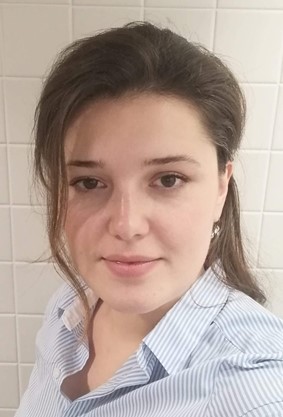
Zaga Trisovic
Topic: Determining groundwater transmissivity through the analyses of physical properties and chemical composition from Svalbard fjord sediments
Home Institution: The Academy of Technical Applied Studies, Belgrade
Host Institution: Stockholm University
Duration of stay(days): 14
Objectives: The objective of this Short-Term Scientific Mission (STSM) is to conduct a comprehensive analysis of the groundwater transmissivity from the Svalbard fjords. This involves examining the chemical and physical characteristics of soil/sediment cores recovered from Svalbard to gain a deeper understanding of offshore freshened groundwater (OFG) present in them. This research is important for advancing our knowledge of OFG bodies and addressing water management necessities in coastal regions. Working collaboratively with the Department of Geological Sciences at Stockholm University, the collected cores will undergo thorough testing utilising all available laboratory scanners, including X-ray, XRF, and MSCL, to ensure a detailed and accurate assessment.
Summary of the work:
At the beginning of August of this year, I had the opportunity to go to Stockholm, Sweden on a Short-Term Scientific Mission (STSM) through the COST Action OFF-SOURCE. My host and mentor on this mission was Professor Wei-Li Hong from the Department of Geological Sciences, University of Stockholm, who played an integral role in steering the fulfilled endeavours.
During the span of the two-week STSM, an evaluation of the physical and mechanical attributes of soil and sediment cores obtained from Svalbard was meticulously conducted. These cores were subjected to measurements, analysis, and processing in accordance with the predefined work plan, taking into account practical constraints and the available time frame.
The project began in the laboratories of the Department of Geological Sciences. The first phase involved conducting analyses on the physical and mechanical attributes of three core samples extracted from Svalbard fjord sediments, employing the Multi-Sensor Core Logger (MSCL). The cores were examined in a whole state, and the properties assessed encompassed gamma density, p-wave velocity, magnetic susceptibility, and electrical resistivity. These analyses yielded datasets that were carefully audited and subsequently processed to facilitate their utilisation and effective portrayal of the core’s physical and mechanical characteristics.
Subsequently, a further examination of the cores transpired through the application of a Rotating X-ray CT system (RXCT). This procedure generated radiographic and CT images of the samples. The next step was to refine and enhance these images, ensuring they accurately portrayed the authentic nature of the core samples. This was accomplished with the Geotek software, which provides the capabilities for visualisation, acquisition, and processing of these images.
When put together, the data obtained from RXCT and MSCL contributed to a better comprehension of the internal structures within the core samples. In light of this, visual representations in the form of plots for MSCL measurements encompassing gamma density, magnetic susceptibility, and mass magnetic susceptibility were juxtaposed with the meticulously processed radiographic and CT images. This juxtaposition facilitated a more holistic interpretation of the core’s physical attributes.
Although time constraints prevented examinations of split cores during this mission, future collaborative efforts will enable additional non-destructive analyses such as XRF core scanning and discrete sampling. These advanced analyses will provide deeper insights into groundwater transmissivity within the fjords of Svalbard. Furthermore, the prospect of formulating numerical models and cultivating collaborations among the members of the COST Action network holds promise for future projects within the overarching framework of the COST Action.
The analyses conducted on three core samples from Svalbard fjord sediments and the resulting datasets contribute to the broader effort of compiling a comprehensive database of known Offshore Freshened Groundwater (OFG) bodies. This initiative aims to consolidate existing geological and geophysical data from various sources, including published literature and specialised data sets, thus enhancing our understanding of OFG characteristics in European waters.
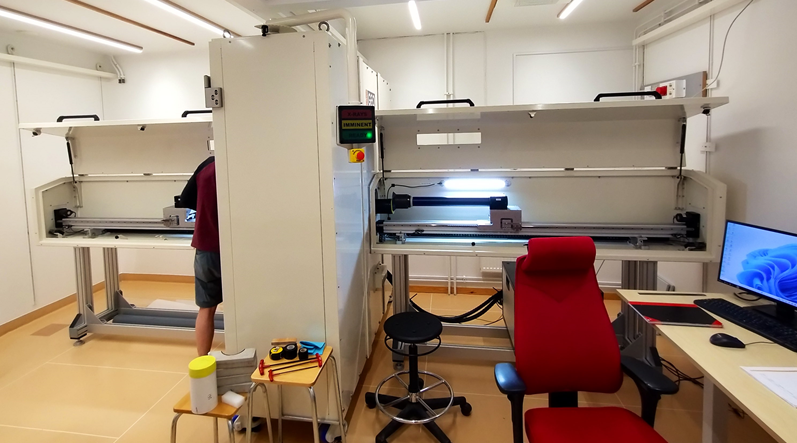
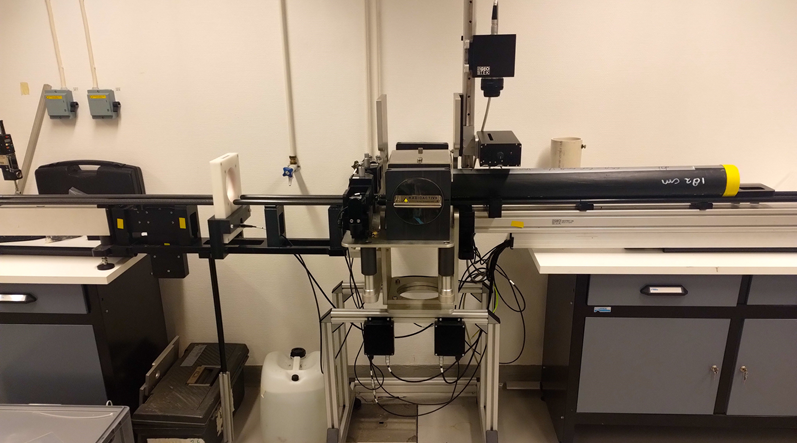
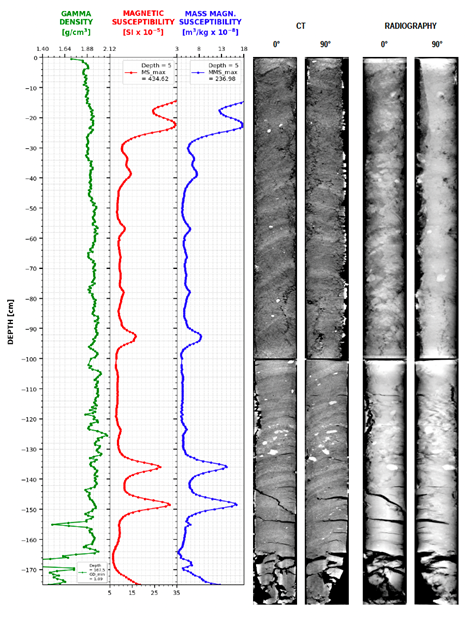

Cristina Corradin
Topic: Groundwater modelling of the Venetian-Friulan Plain and the North Adriatic for the sustainable management of water resources
Home Institution: University of Trieste
Host Institution: Utrecht University
Duration of stay(days): 14
Objectives: This STSM’s major objective is to broaden the understanding of groundwater flow system of the Venetian-Friulan Plain by building a three-dimensional groundwater flow model using state of the art modelling tools and methods. Based on stratigraphic data and seismic lines, a geological model of the region has already been developed and will serve as the basis for building this three-dimensional groundwater model. The study area consists of 4 confined aquifers reaching down to a depth of 250 m and extending from the plain offshore to the Adriatic Sea for approximately 15 km. The fundamental goal of the entire research is to assess the North Adriatic Sea’s potential to host offshore freshened groundwater and to provide a quantitative estimate of this resource. This goal fits in perfectly with the goals of the COST action WG1 tasks by providing a useful groundwater modelling case study. Furthermore, the developed groundwater model can be refined in the future to simulate regional groundwater flow under future climate change scenarios or groundwater extractions.
Summary of the work: This Short-Term Scientific Mission at Utrecht University has been invaluable for enhancing my understanding of fundamental groundwater flow principles and concepts. The main objective was developing a groundwater model of the Venetian-Plain and northern Adriatic Sea to investigate the possibility of connections between inland and offshore aquifers, quantifying the inflow of freshwater into the offshore aquifers if such connections exist. The primary goal was developing a parallel algorithm using IMOD-WQ to analyse groundwater flow and salinity within a geological grid. The initial groundwater model served as a trial simulation, employing simplified geological constraints and boundary conditions over a limited timeframe. This algorithm facilitates the rapid creation of comprehensive groundwater models that account for variable density flow. A successful groundwater model was run for 10,000 years, a task now achievable in just a few minutes using the parallel code. Future objectives include developing a parallel processing to extend the groundwater modelling period to 400,000 years while considering a dynamic geological model that evolves over time. The expanded model will assess the potential intrusion of saltwater during high sea level periods, such as the Holocene transgression, and the potential deposition of freshwater in the current continental shelf during low sea level phases.

Isha Savani
Topic: Statistical characterization of rainfall over arid regions of Europe and implications for groundwater recharge
Home Institution: Ruden AS, Oslo
Host Institution: Earth Science Department, University of Oxford
Duration of stay(days): 19
Objectives: The project will be a collaboration between myself from Ruden AS, Norway and Dr. Claudia Bertoni from Oxford, UK, and her colleagues at the Department of Geography and/or Department of Atmospheric, Oceanic and Planetary Physics. I am working on estimating groundwater recharge and modelling physical phenomena like the movement of fluids through tiny grains of a porous medium, to large scale reservoir simulations of water through the sub-surface. Claudia Bertoni is a marine geologist with expertise in characterizing off-shore and on-shore fresh ground water resources. In the proposed project, we will combine our geological and modelling expertise to perform statistical modelling of historic rainfall over arid regions of Spain and Italy.
Rainfall can be understood as a chaotic phenomenon which is both random and predictable. Depending on the region of Europe, rain arrives somewhat predictably, in spring and autumn for instance, however neither the quantity nor the timing is the same every year. This randomness inherent in rainfall, together with yearly trends impacted by climate change can be better understood by identifying statistical
distributions that best characterize rainfall over a large scale. In this project, the probability distribution best describing rainfall over arid regions of Europe will be identified.
Summary of the work: Several atmospheric processes contribute to the occurrence of rainfall- the temperature of the air, land, sea, the magnitude of soil moisture and large-scale currents driving wind and moisture around the globe to name a few. The spatial variation of rainfall is a tangible fingerprint that can say something about the atmospheric processes at play. During my Short-Term-Scientific-Mission at the Department of Earth Sciences at Oxford, I focused on the regime of extreme rainfall, since unexpected amounts of rain in a short period of time can have dire consequences. I analysed the distribution of intense rainfall (daily rainfall > 100 mm) over Spain by fitting the distribution to existing statistical probability distributions. It is not always the case that the data in question can be described by a known statistical distribution, but in the case of Spain, the daily rainfall data over the last 60 years could indeed be captured in known statistical distributions. Similar analysis of extreme rainfall over other regions of the world has shown that exponential type distributions, and the power-law distribution are ubiquitous. Interestingly, I found that there was not just one but three distributions that described the data to a sufficiently good degree- Power-law, Weibull, and the Gamma distributions. What could be the relationship between these distributions and how one can begin to identify the atmospheric cause of such a signature is the topic of future research.
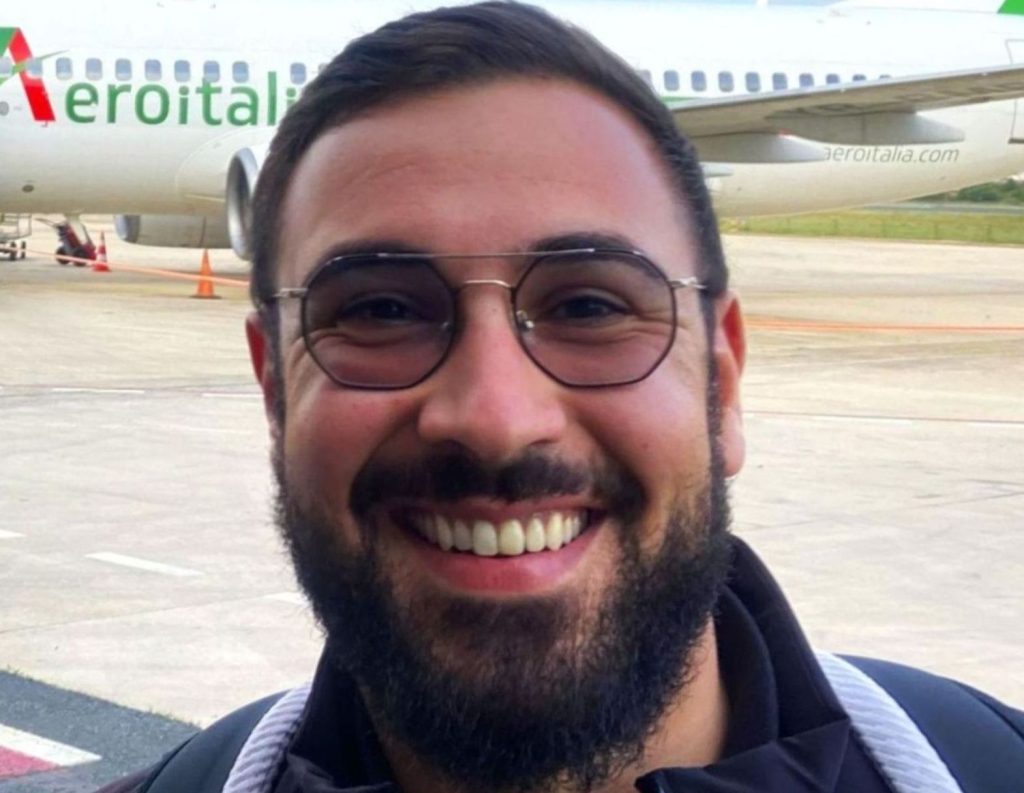
Damiano Chiacchieri
Topic: Standard Workflow definition for borehole analysis in deep freshwater exploration.
Home Institution: University of Roma Tre
Host Institution: Université de Montpellier
Duration of stay (days): 10
Objectives: The aim is to define a methodology for the analysis of deep wells (in particular offshore) to investigate the characteristics of deep groundwater. The main objective will be to define a detailed workflow based on the multidisciplinary analysis of well Composite Logs (complete summary of all operations carried out during drilling) using fluid tests, and electrical logs to define the presence of deep groundwater through the estimation of pore water conductivity.
Summary of the work: During this STSM, the objective was to define a methodology for the analysis of deep wells to identify deep groundwater and define their characteristics. A detailed workflow was defined based on multidisciplinary analysis of well Composite Logs (complete summary of all operations performed during drilling) using fluid tests (DSTs and production test). Production tests and DSTs are measurements that are carried out in the wells under production conditions, to determine the nature of the fluid present and the production capacity of the mineralized formations. Through these, it is possible to extract salinity and pressure information. The workflow was defined according to the following steps: i) choose an area with good data availability in terms of deep wells (the Hyblean Plateau and its adjacent offshore); ii) within the study area, two key wells were chosen, one onshore (Carrubo 1) and one offshore (Delfino 1); iii) data were extracted directly from the intervals that have been tested by DST’s or Production test (salinity data of the recovered fluid; pressures of the formation fluid; volume quantities of the fluid recovered during the test; the times of duration of the test). Then, in addition to the planned work, a comparison was also made between the fluid test method results and the pore water conductivity method applied on well logs. The electrical logs of the wells surveyed were digitised for a total of about 24 km of digitised logs. Then porosity was derived by converting the Sonic log and conductivity was calculated from resistivity using Waxman and Smith’s 1968 law, based on Archie’s law of 1942. Finally, pore water conductivity was calculated along the profiles of the chosen wells.
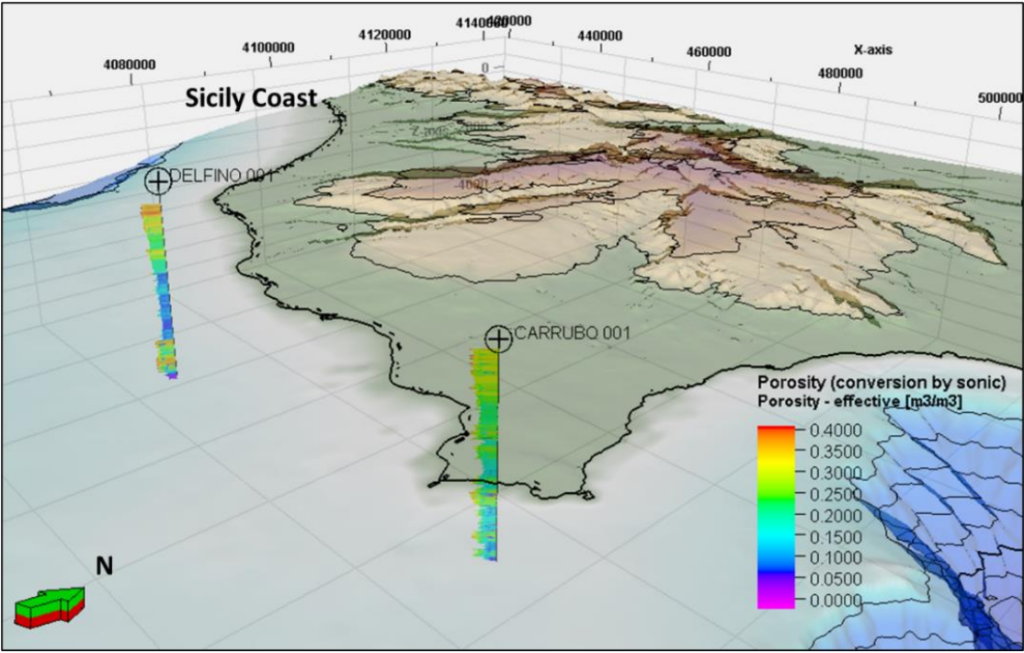
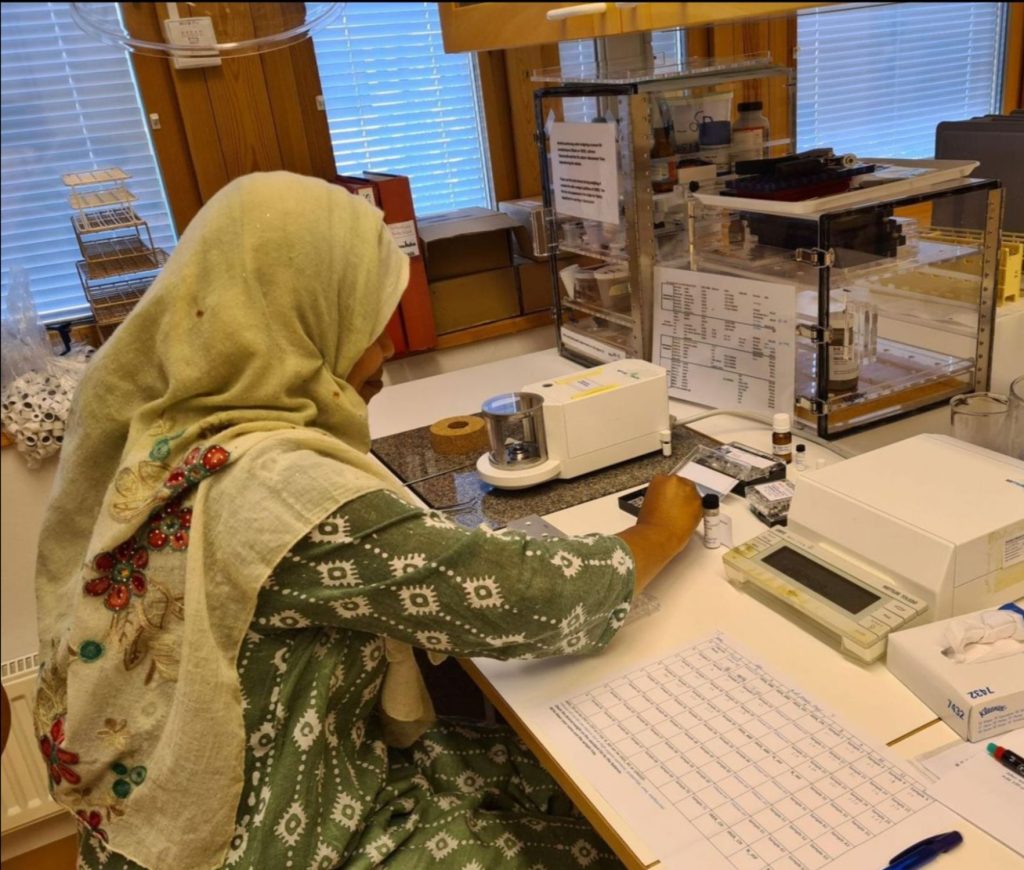
Santona Khatun
Topic: Biogeochemical Impact of the Offshore Freshened Groundwater in the Arctic Ocean
Home Institution: Institute of Earth Surface Dynamics, Lausanne
Host Institution: Stockholm University
Duration of stay (months): 5
Objectives: Offshore freshened groundwater (OFG) is known as an unconventional water resource in the continental margins all over the world having an approximate volume of 0.072% water on Earth1,2. The existence of these freshened aquifers may play an important role in the hydrological cycle, however, is often ignored by massive sea water and conventional terrestrial groundwater hydrogeology. Even though the study of understanding OFG geometry in coastal regions has been growing rapidly3,4, little is known about the biogeochemical impact on Arctic fjords ecosystems in response to global climate change.
Changes in climate have long been recognized in the high-Arctic marine sediment of the Svalbard fjords where polar and/or glacier meltwaters are increasing and influencing the physical, chemical, and biological functioning of the fjord sediment ecosystems5,6. As the fjords are highly exposed to global climate change and ocean warming, their impact on OFG in Arctic fjords is inevitable. Therefore, the objectives of my research, in collaboration with the Ocean and Mud group of Stockholm University (Prof. Wei-Li Hong), are to clarify the biogeochemical impact of OFG interaction in Arctic fjords ecosystems.
Specific objectives are:
- To identify the presence and impact of OFG on nutrient dynamics in Arctic fjords.
- To evaluate the future projected changes in biogeochemical cycles related to OFG.
Summary of the work: The main goal of our current collaboration is to obtain and integrate detailed knowledge about the biogeochemical impact of OFG in the Arctic fjords and its connection to marine nutrient cycling. Only a part of the analysis is completed, the results helped us to predict the effect of OFG on marine habitats as well as altering ecosystem functions. Microbial DNA analysis was performed for the sediment samples collected from Superstation-2 (SS2), Superstation-5 (SS5), and Superstation-6 (SS6) in the Mineral Vivant Lab, University of Lausanne to understand the presence and variation of microbial communities among cores collected from different superstations at Svalbard fjords. For SS6, we measured the DNA yield for two cores at the 2-4cm depth where we observed the high microbial abundance in both cores. Biogeochemical properties of the pore water and sediment samples were analysed using standard and accredited methods at the Ocean and Mud lab, at Stockholm University. We analysed the sediment cores collected from SS6 and observed high TC and TOC content in the upper layer which tended to decrease with the depths minimising around 8cm (Core 1) and 20cm (core 2) depths indicating high microbial abundance in the upper layer. Interestingly, the δ13C TC values of Core 1 were likely to increase from −20 ‰ (1 cm) to −17 ‰ (0-8 cm) and the δ13C TOC values remained unchanged. While in Core 2, the δ13C TC value increased to −14 ‰ (19 cm) from the surface zones. The combined results of geochemical and biological information will help to understand whether this unconventional water source leads to changes in carbon balance in Arctic areas by enhancing land-ocean connectivity.
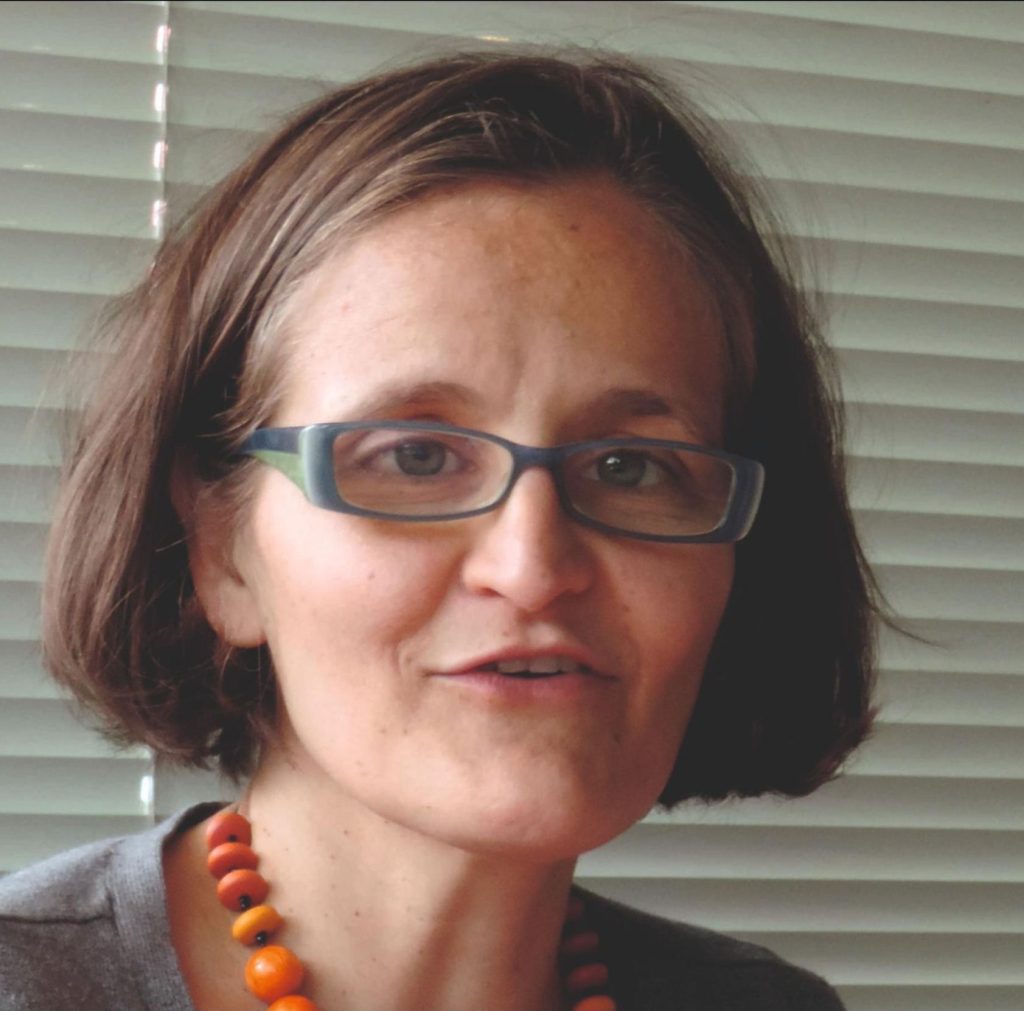
Michela Giustiniani
Topic: Identification of potential areas for exploration of Offshore Freshened Groundwater (OFG)
Home Institution: Institute for Oceanography and Applied Geophysics (OGS)
Host Institution: Earth Science Department, University of Oxford
Duration of stay(days): 17
Objectives: The objectives of this STSM are to create thematic maps on the occurrence, characteristics and extent of OFG identified in the waters of European countries, and to identify areas of interest, with potentially significant volumes of OFG, where additional studies are required. It will deliver a GIS project with several layers summarising the data collected during Year 1 of the COST Action, and integrated with the existing literature, as well as a set of thematic maps of known and predicted OFG distribution in the waters of the European countries. These thematic maps will be an indispensable tool to better visualise the obtained results and to identify the area where there is a lack of data and plan future exploration activities.
Summary of the work: This STSM was specifically designed to collect information and data in the European region and neighbouring countries, to address the following Working Group 1 tasks:
- Task 1.1: Compile a database of known OFG bodies and their characteristics in waters of COST Member Countries from published literature and data sets (e.g. borehole logs, geophysical data).
- Task 1.2: Compile a database of available geological and geophysical data from margins of COST Member Countries from published literature and data sets (e.g. EMODnet, SeaDataNet).
The main objective of this STSM was to develop two databases: 1) information on OFG bodies and 2) Geological and geophysical data related to OFG identification, from open source data, and other information provided by the WG1 members. The mission aims were achieved through the following activities. First, a shapefile for each onshore and offshore indicator of the presence of OFG was created. This included well and core data; submerged and coastal springs; electromagnetic data; onshore indicators. Second, national and local data repositories with data useful for OFG identification and mapping were identified. From these repositories, we downloaded geological and geophysical data, which can be used to evaluate areas with potentially significant OFG volumes., and where additional studies are required. These data will form the starting point for the development of a WEBGis, which will be accessible via the website OFF-SOURCE.

Daniel Zamrsky
Topic: Offshore freshened groundwater in Israeli continental shelf
Home Institution: Faculty of Geosciences, Utrecht
Host Institution: University of Malta, Faculty of Geosciences
Duration of stay(days): 15
Objectives: The main goals are to build 3D stochastic geological model of Israel continental shelf (or part of it), to use it as input into a numerical groundwater model to study salinity trends in past glacial-interglacial cycles, to combine open-source tools such as Python scripts and imod-WQ parallel code, and to create a procedure that can be replicated (and adjusted) for other study areas during the OFF-SOURCE project.
Summary of the work:
The STSM was oriented towards an exchange both in applicant’s learning of stochastic geological modelling which is the host institute’s expertise (Task 1.3) as well as in the opposite direction where the applicant can share his knowledge on setting up large scale groundwater salinity models using the imod-WQ parallel code (Task 1.4).
An increased access to parallel codes such as imod-WQ and high-performance computational facilities in recent years enables building large scale 3D groundwater salinity models in coastal regions. Such models can provide valuable information for local, regional, national or even international water management bodies and policy makers by providing a better understanding of past, present and future groundwater conditions in a region of interest. A good understanding and representation (i.e., model) of regional geological settings is a crucial step towards a reliable and more accurate groundwater models. The level of geological information and data varies globally from regions with full 3D geological models (e.g., the Netherlands) to countries where almost no (or very limited amount) geological information (or very limited amount) such as boreholes is openly available. The latter can be circumnavigated by creating a set of stochastic geological models that can be based on varied number and type of geological inputs. However, the difference in groundwater salinity (and overall groundwater flow conditions) between groundwater models based on different geological models with varying degree of complexity and geological data input is not yet known. Therefore, in this STSM we focus on creating a set of geological models ranging from purely conceptual to geological models based on both borehole and geophysical data. To conduct this study, we selected the coastal region of Israel since it is well studied and we have access to large amount of geological data thanks to local contacts and institutes. At present we are still finalising the set of geological model scenarios and are moving towards implementing the imod-WQ Python tools to build the groundwater salinity models.

Ariel Thomas
Topic: Offshore Freshened Groundwater Data collection in Israeli continental shelf
Home Institution: Marine Geology Seafloor Surveying Msida
Host Institution: The MarCoast Ecosystems Integration Lab, at the Technion — Israel Institute of Technology
Duration of stay(days): 15
Objectives: The primary goal of this STSM is to collect and prepare data that will be utilized to assess the Offshore Freshened Groundwater (OFG) potential on the Israeli continental shelf. The expected technical outputs include a data repository including seismic and other geophysical data, geological cross-sections, borehole and water quality data, a summary of the depositional environment of the Israeli continental shelf and its implications for the potential reservoir distribution, and a definition of model domain for subsequent 3D numerical shelf modelling of groundwater salinity distribution on the continental shelf.
Summary of the work:
The main objective of this visit was to identify and search local data sources/repositories and collect relevant data for investigation of OFG potential on the Israeli continental shelf. This was done by consulting various researchers at the host institute to identify data sources. A key resource was the Petroleum Repository of the Israeli Ministry of Energy, which hosts data and information on E&P activity for oil and gas onshore and offshore Israel. The STSM also included a site visit to the Geological Survey of Israel in Jerusalem, facilitated by Dr. Yael Sagy.
Finally, a seminar talk was presented at the Grand Water Institute titled, “Offshore Freshened Groundwater: An unconventional water resource in coastal regions?” The seminar series of the Grand Water Institute was attended by approx. 30 engineers and researchers from the Technion. The talk highlighted the state of the art of OFG research and presented a number of case studies.
As technical outputs of this STSM, there will be:
- A data repository including seismic and other geophysical data, geological cross-sections, borehole and water quality data. It includes digital elevation, bathymetry and surface data, borehole data and other GIS data (polygons) describing the project area.
- A literature review of past geological studies and coastal groundwater studies as well as a summary of the depositional environment of the Israeli continental shelf and its implications for the potential reservoir distribution.
- Definition of the model domain for subsequent 3D numerical shelf modelling of groundwater salinity distribution on the continental shelf was well defined.

As follow-up of my mission, I plan to digitise the legacy borehole data and run a geostatical modelling exercise of the coast aquifer properties; gather shallow borehole data from groundwater wells to help constrain onshore properties of the shallow sediments; reconstruct the paleo-hydrological sealevel history on the coastal aquifer model and investigate OFG potential (Work planned in the scope of follow-up STSM by Daniel Zamrsky); and present the study results at Sea Water Intrusion Meeting in En Gedi, Israel in January 2024.

Marina Flores
Topic: Hydrogeological simulations of offshore aquifers in the Levant Basin, Eastern Mediterranean
Home Institution: University of Oxford
Host Institution: Institute for Oceanography and Applied Geophysics (OGS)
Duration of stay(days): 15
Objectives: The general objective of the project is to identify potential unconventional water resources, in line with the COST Action WG1 tasks, through targeted hydrogeological simulations. The study area to undertake the simulations is the Eastern Mediterranean. The core tasks tp be undertaken will be to complete and update database on hydraulic properties and other model parameters of the aquifers that will be modelled; to run transient hydrogeological simulations over at least two glacial cycles, and possibly going back in time as early as the Messinian Salinity Crisis (ca.5-6My). The expected outputs and deliverables will be the estimation of the occurrence, salinity and volume of OFG in the study area, and the quantification of changes in volumes over the latest glacial cycles.
Summary of the work:
I’m a Hydrogeologist with industry experience, currently undertaking a research post at the University of Oxford. In my recent STSM (Short Term Scientific Mission), I researched unconventional groundwater resources in Europe, in particular Lebanon and the UK, aligning with the overarching goals of the COST Action Working Group 1. My primary objective was to contribute to hydrogeological studies and models to identify potential sources of freshwater at depth (around 1 km) and in unconventional geological settings.
The initial phase involved a literature review and data collection, which led to the creation of a geological profile, forming the base for a conceptual model in Lebanon. The data was compiled from open sources, an unpublished MSc thesis by Benjamin Penny (University of Oxford) and offshore spring data contributed by a member of the COST Action, Professor Amin Shaban. The studies in the area are ongoing, along with hydrogeological studies in the southeast coast of the UK. The objective in the UK is to understand how deep the groundwater in the chalk extends.
My activities have also included outreach and dissemination of the COST Action, the OFF-SOURCE project and the importance of unconventional groundwater resources. I’ve delivered presentations in Argentina and at the University of Oxford, and will further promote the work and project in conferences in the future.
The STSM allowed me to meet and network with other researchers around Europe who are focusing their efforts to contribute to increase the knowledge of conceptualising and modelling unconventional settings, searching for groundwater resources. The work that is ongoing as part of the OFF-SOURCE project, will benefit in particular regions facing water scarcity challenges.
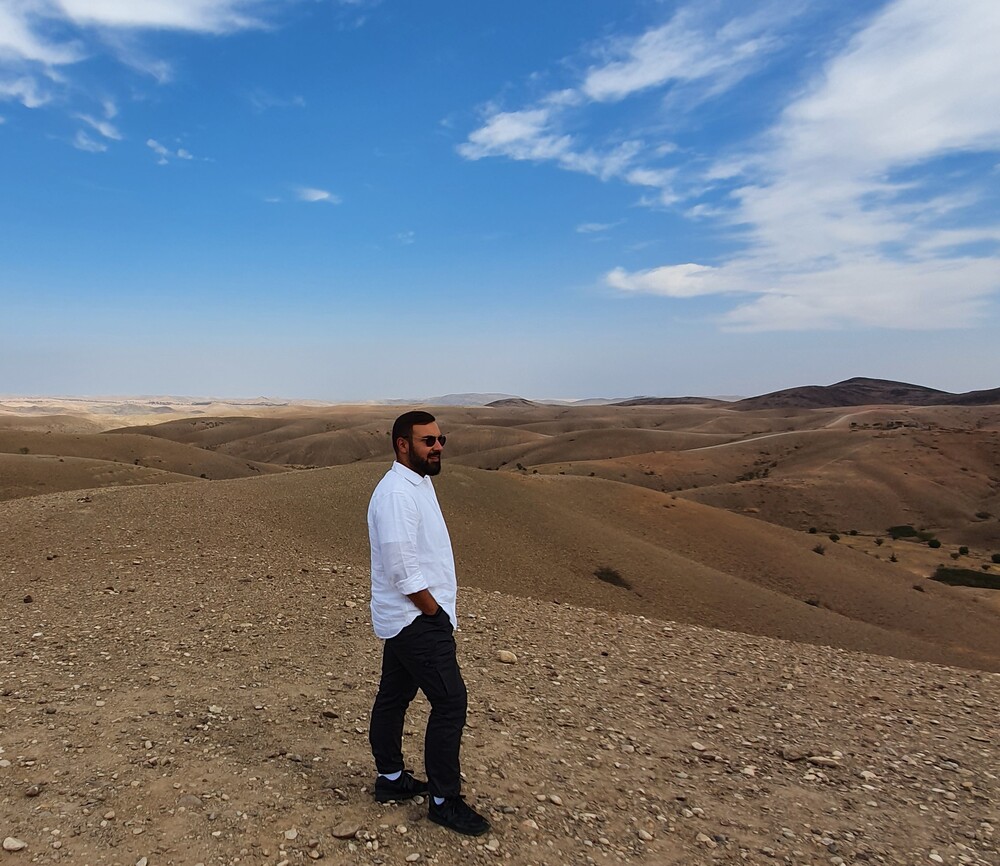
Damiano Chiacchieri
Topic: 3D Model of the Gela platform carbonate reservoir along the SE coast of Sicily, Italy
Home Institution: University of Roma Tre
Host Institution: University of Malta
Duration of stay (days): 16
Objectives: The main objective of this STSM would be to generate a 3D model of the carbonates of the Gela platform as a possible reservoir of fresh groundwater. The main goals of the STSM are 1) to work on deep well data from South-Eastern Sicily (focus on Gela Carbonate Platform), 2) to analyze Composite Logs and associated data (formation top, stratigraphy, facies, Electrical Logs, etc..), and 3) to assess whether the Gela platform is a possible reservoir of fresh groundwater.
Summary of the work: The target of this STSM has been the Gela Formation (located in the South-East of Sicily), a Triassic carbonate platform of shallow-water facies. As a result of Oil & Gas exploration in this area, several well Composite Logs and associated drilling reports are publicly available. The analysis of 10 chosen deep wells’ data led to an organised database with several elements (formational tops, thicknesses, stratigraphic facies, geographic position, value of ground level, and total drilling depth) ready to be used for a modelisation in the Petrel software. This allowed to build, over the whole area of interest, the Top and Base Gela Formation structural surfaces. These surfaces were further used, with stratigraphic layering, as the foundation for the construction of the preliminary 3D geometrical model.
